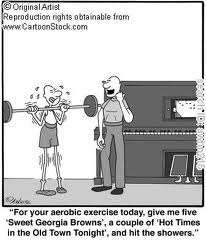Ever wished for a 9-5 and thought it was a lost cause because you're a musician? Do not despair! Stuart Anello found the answer: as a new recruit for the Navy Band, he realized that being in the Military as a musician is like working a 9-5.
How did you first hear of the Navy Band, and what made you want to audition for it?
I heard about the premiere bands, which generally don't hold auditions because they're already filled. I would look at their website and I would see openings for guitar, but the audition would be a month later and I knew I wouldn't be ready for it.
Then I found another posting for an audio engineer position for the Coast Guard and I applied for it and got to the 2nd round of interviews. Going through the interview process and talking to them about their program got me excited to not only be their engineer but also to write music for them.
I did more research and I realized that there were extensive band programs in the military, and I looked at the Army and the Navy bands. I was accepted into the Army band, which was exciting but I wasn't comfortable joining because of the structure of their program. I then looked into the Navy and was more impressed, so I auditioned for them.
"The audition process is tough. You have to show
that you can play anything"
How was the audition process for the Navy band?
It was tough. It took me three auditions before I figured what they wanted. They list their audition requirements on their website, and they may seem specific but they're actually pretty vague. You have to show that you can play anything, except classical music. As a guitar player, you have to play with the right tone, style, rhythm, etc.
"The focus for the audition is to show different
styles and fulfill every aspect of it"
For my third audition I had five or six prepared pieces. I started with a standard pop tune, Bon Jovi's
Living on a Prayer. After that I did a more advanced rock tune by Robben Ford which included a very technical solo. Playing the recorded solo shows technique, even though you won't be doing this for any performances.
Then I played
Johnny Be Good, followed by a funk tune. The focus is showing different styles and fulfilling every aspect of it. You have to be flexible. For the jazz piece I played
Wave, a blues in a Latin style which I played along with an Abersold track. I played the melody, comped and improvised over several choruses.
For the solo guitar piece, which was completely written, I played
Dolphin Dance, arranged by Barry Galbraith. For this last piece it was important that I extended the written music with ideas of my own. After each song, the auditioners ask you to change or to improve things, or emphasize different notes. The key there is to do what they want right away.
After the prepared pieces, they have a packet of sight reading, with several examples in several different styles, all in quick tempo. For example, constant eight notes in 9/8 at 120 per quarter notes, chord reading and rhythm figures. They're basically all clips of big band charts.
If they give you a tempo you can't do, the best thing to do is to show them how you would begin to approach learning the example. You also have to play scales, as fast as you can!
"The key for sight reading is to make
quick decisions and stick to them"
The last section is interpreting a lead sheet: playing on your own, it is important to represent the melody and harmony together. So you really have to know when to focus on the melody or the comping, and figure out a creative way to approach the whole song.
They gave me
All the things you are,
On green dolphin street and a Cole Porter tune (standards you find in the real book). It is important that the style is clear. They may ask that the first eight bars are played straight and the next eight bars in a latin rhythm.
You'll have to improvise over the changes as well, all this without a rhythm section or any accompaniment. This can be hard because there are so many ways to play the music . The key for me was making quick decisions and stick to them: decide the octave, voicings, when to add chords or embellishments.

















